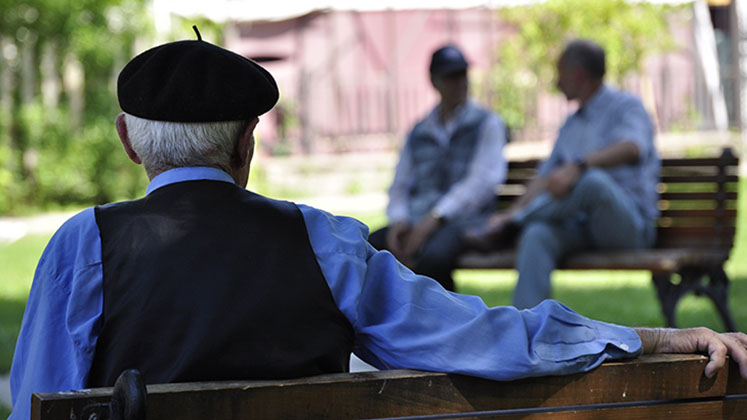The study, which has been published in the Journals of Gerontology, is the first to determine that a person’s level or change of social isolation is associated with increases in memory decline over time, rather than poorer memory increasing social isolation in later life.
Dr Sanna Read, who led the research from CPEC at the London School of Economics and Political Science (LSE), said: "We conducted this study to untangle the direction of the effect underlying the association between social isolation and memory. Although several previous studies support the idea of a link between social isolation and cognitive change, this is the first to have assessed this link when social isolation and memory change over time."
The research, based on the CPEC-led Modelling Outcome and Cost Impacts of Interventions for Dementia (MODEM) study, investigated associations between changes in social isolation and memory in 6,123 older women and 5,110 older men over ten years. Data was taken from the English Longitudinal Study of Aging (ELSA), a nationally representative study of the older population of England.
Responses from the ELSA were analysed with a new model to identify levels and changes in both social isolation and memory between six time points over the ten-year period.

Findings also suggest a difference between men and women in the way that social isolation affects memory decline.
Men who had an initially high level of social isolation experienced a greater decline in their memory. Women experienced more profound memory decline when social isolation increased suggesting that the accumulation of isolation over time was detrimental for women’s memory.
The results suggest that men have a weaker association between social isolation and memory compared with women. Men also showed less change in their level of social isolation, and there were only a small number of men with a high level of isolation. The paper suggests that this is because older men are generally more likely to live with a partner, who could provide access to other social contacts.
Dr Read noted: "Although men and women appear to differ in how strong and complex the associations between social isolation and memory changes were, the overall message was that social isolation predicts changes in memory. This is consistent with results from previous studies, but our analysis is unique in that we were able to examine effect of both levels and changes to new extents. Understanding the dynamics of social isolation and memory and their gender-specific patterns can be useful when planning an intervention to reduce memory decline in older age."
Behind the article
Social Isolation and Memory Decline in Later-Life by Dr Sanna Read, Adelina Comas-Herrera and Dr Emily Grundy was published in The Journals of Gerontology: Series B on 29 November 2019.
The MODEM study is funded jointly by the Economic and Social Research Council and the National Institute for Health Research between 2014 and 2019.
Featured image: Burim, CC BY-SA 3.0